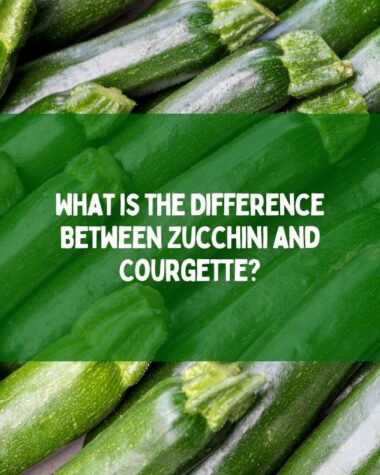Zucchini, a beloved summer squash, thrives in warm weather. However, understanding the specific temperature requirements for zucchini is essential for successful cultivation.
Whether you’re a seasoned gardener or a beginner, knowing the temperature range that zucchini can tolerate is crucial for providing optimal growing conditions and ensuring a bountiful harvest.
In this article, we will delve into the topic of zucchini’s temperature tolerance, exploring the optimal range, factors that influence its growth, and strategies for protecting zucchini plants from extreme temperatures.
The Ideal Temperature Range for Zucchini
Zucchini plants thrive in warm weather and require specific temperature conditions for optimal growth and development. The ideal temperature range for zucchini cultivation is between 70°F (21°C) and 90°F (32°C).
Within this range, zucchini plants exhibit vigorous growth, produce healthy foliage, and develop an abundance of flowers and fruit. However, zucchini can tolerate temperatures slightly outside of this range, with some variations depending on the growth stage of the plant.
Related Reading
- From Garden to Danger: Exploring the Causes of Poisonous Zucchini
- Can Rabbits Eat Zucchini? Why Or Why Not?
- Raw Zucchini: Safe or Not? Debunking Myths About Eating Uncooked Zucchini
- Is Zucchini a Superfood?
- Is Zucchini A Fruit Or A Vegetable? How It is Classified
Factors Affecting Zucchini’s Temperature Tolerance
Several factors influence zucchini’s ability to tolerate temperature fluctuations. Understanding these factors will help you provide the best environment for your zucchini plants throughout their growth cycle.
Seed Germination and Early Growth
During the initial stages of zucchini growth, when the seeds are germinating and the seedlings are establishing themselves, the temperature range becomes particularly critical.
Cooler temperatures can delay germination, while excessively high temperatures may inhibit seed viability. Once the seedlings emerge, they are sensitive to cold temperatures.
Vegetative Growth and Flowering
Zucchini plants exposed to temperatures above 90°F (32°C) may experience reduced flower and fruit set, as high heat can negatively impact pollination and fertilization processes.
Therefore, maintaining temperatures within the optimal range is crucial for achieving healthy vegetative growth and abundant flower production.
Fruit Development and Maturation
During the fruit development and maturation stages, zucchini plants continue to thrive within the 70°F (21°C) to 90°F (32°C) temperature range.
Consistent temperatures within this range promote optimal fruit growth, texture, and flavor. Temperatures exceeding 90°F (32°C) can lead to decreased fruit quality, reduced sugar content, and a potential increase in bitterness.
Protecting Zucchini from Extreme Temperatures
To protect zucchini plants from extreme temperatures and ensure their well-being, gardeners can employ various strategies based on the specific climatic conditions in their region.
Cold Protection
- Covering: In colder regions or during unexpected cold snaps, covering zucchini plants with protective materials such as frost blankets, row covers, or plastic tunnels can help retain heat and shield them from frost damage. Ensure the covers extend to the ground and are properly secured to prevent cold air from reaching the plants.
- Mulching: Applying a layer of organic mulch around the base of zucchini plants can help insulate the soil and regulate temperature. Mulch acts as a protective barrier, reducing temperature fluctuations and conserving moisture, which is beneficial for overall plant health.
- Planting in Raised Beds: Raised beds provide better drainage and heat retention, creating a favorable microclimate for zucchini plants. The elevated soil temperatures in raised beds can help mitigate the effects of cold weather and promote healthy growth.
Heat Protection
- Providing Shade: Shielding zucchini plants from excessive heat is crucial to preventing stress and ensuring proper fruit development. Erecting shade structures or using shade cloth during the hottest parts of the day can help reduce temperature extremes and protect the plants from scorching sun rays.
- Mulching: Applying a layer of organic mulch around zucchini plants can also help regulate soil temperature and moisture levels during hot weather. Mulch acts as a natural insulator, keeping the roots cooler and conserving moisture, which is particularly important during periods of drought or intense heat.
- Watering: Adequate watering is essential to help zucchini plants cope with high temperatures. Water deeply and consistently, ensuring the soil is moist but not waterlogged. Irrigate early in the morning or late in the evening to minimize water loss through evaporation.
Tips for Temperature Management in Zucchini Cultivation
To optimize temperature conditions for zucchini cultivation, consider the following tips:
- Choose the right planting time: Start planting zucchini outdoors when the soil temperature consistently reaches 60°F (15.5°C) or higher. Planting too early, before the soil has warmed sufficiently, can hinder germination and stunt growth.
- Utilize microclimates: Take advantage of microclimates in your garden or growing area. Plant zucchini where they can benefit from natural windbreaks or partial shade to minimize temperature fluctuations.
- Use season extenders: Employ season extenders like greenhouses or high tunnels to control the growing environment and protect zucchini plants from temperature extremes.
- Monitor soil temperature: Regularly monitor the soil temperature using a soil thermometer to ensure optimal conditions for seed germination and growth.
- Select heat-resistant varieties: Choose zucchini varieties that are known for their heat tolerance, as these are better equipped to withstand high temperatures without compromising fruit quality or productivity.
- Practice proper plant spacing: Adequate plant spacing promotes good airflow, reducing the risk of heat buildup around zucchini plants. Proper spacing also helps prevent the spread of diseases and improves overall plant health.
Related Reading
- An Overview of Cucurbitaceae Family
- Cucumber Benefits for Skin: And How We can Use it
- When to Feed Tomato Plants: A Comprehensive Guide
- Eggplant Vertical Gardening: A Space-Saving Solution for Growing Eggplant
- Pumpkin Mosaic Virus: How My Plant Infected And How To Treat Mosaic Virus?
- Is it Dangerous to Eat Raw Carrots?
Conclusion
Understanding the temperature requirements for zucchini plants is vital for successful cultivation and a bountiful harvest. Zucchini thrives in warm weather, with an ideal temperature range between 70°F (21°C) and 90°F (32°C).
Factors such as seed germination, vegetative growth, flowering, and fruit development all influence zucchini’s temperature tolerance.
By implementing strategies to protect zucchini plants from extreme temperatures and employing temperature management techniques, gardeners can create optimal conditions for healthy growth and maximize their zucchini yield.






